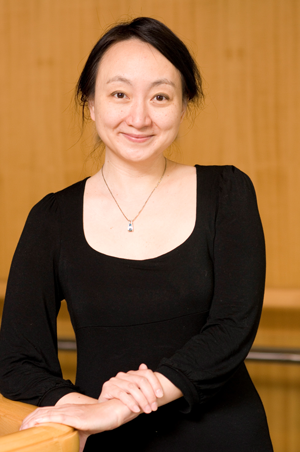 |
|
|
Jennifer Wang, MD |
A study conducted by UMass Medical School physician-scientist Jennifer Wang, MD, and colleagues at Eastern Virginia Medical School examines the association between infection with Coxsackie virus B (CVB) and development of type 1 diabetes. Published online by the Journal of the Endocrine Society, the study includes insights that could help identify individuals at risk for type 1 diabetes and aid in developing ways to prevent onset of the disease.
“Studies on human genetic variations link altered immune responses to viral infections with type 1 diabetes. We found that both antiviral interferon and general inflammatory responses were activated at the protein level, and that insulin production was decreased in human islets following viral infection,” said Dr. Wang, associate professor of medicine in the Division of Infectious Diseases and Immunology. “To our knowledge, these are the first proteomic studies of viral infection of cultured human islets, and the findings provide insight for mechanisms and strategies for prevention of type 1 diabetes.”
The study used protein analyses to examine responses to CVB infection in cultured human islets, which contain the beta cells that produce insulin. The proteomic analyses revealed specific proteins that changed after the islet cells are exposed to the virus, indicating that Coxsackie infections can accelerate the process in which insulin-producing cells are lost. These proteins could be targets for drugs that could prevent or dampen the immune response associated with viral infection and type 1 diabetes.
“As clinicians and scientists, we examine diseases and pathogens using a multidisciplinary approach,” said Wang, an infectious disease specialist who conducted the study with endocrinologist Jerry L. Nadler, MD, professor and the Harry H. Mansbach Endowed Chair in Internal Medicine and vice dean of research at Eastern Virginia Medical School. “If we can’t prevent Coxsackie infection with a vaccine, maybe we can blunt or fine tune the body’s response to infection with a drug so that someone who has been infected would be less likely to get diabetes.”
The research team’s next steps are to ascertain whether any of the changes to the islet cell genes and proteins caused by CVB could be flags for detecting type 1 diabetes, as well as potential drug targets.
Related story on UMassMedNow:
Predicting flu: UMass Medical School team developing tools for anticipating viral evolution